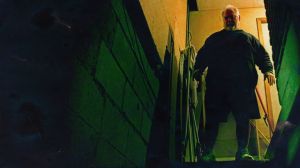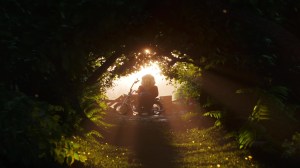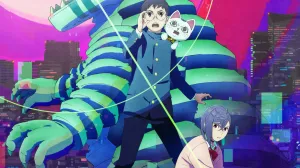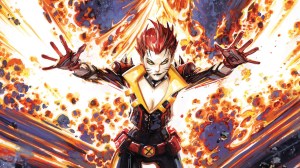Star Wars: The Rise of Skywalker co-writer Chris Terrio reveals the plot point from Rian Johnson’s preceding episode, The Last Jedi, that made things “tricky” when bringing the sequel trilogy and the nine-movie saga to a close in Episode IX. Spoilers. In Skywalker, it’s revealed the long-ago vanquished Palpatine (Ian McDiarmid) — destroyed aboard the Death Star II when a returned Anakin Skywalker (Sebastian Shaw) turned on his Sith master — was the puppeteer behind Snoke (Andy Serkis), the mysterious Supreme Leader of the First Order and dark side user who was suddenly slain by apprentice Kylo Ren (Adam Driver). Left without a big bad, and knowing they would return Ren to the light, the decision was made to bring back the ultimate evil: the former Emperor.
Videos by ComicBook.com
“[Producers] Kathy Kennedy and Michelle Rejwan had a clear plan for where they wanted things to end,” Terrio told Awards Daily. “They had clear plans about certain narrative marks they wanted us to hit. They also gave us a lot of freedom within that.”
The creative team knew Ren and Rey (Daisy Ridley) “were utterly key to this trilogy,” Terrio added, “but we also felt that there was no way that we were going to not find a path to redemption for Kylo Ren, the son of Han and Leia.”
He continued, “We felt that right from the beginning, when J.J. [Abrams, director] established Kylo Ren in Episode VII, there was a war going on inside him and that he had been corrupted by something bigger than himself and had made bad choices along the way. J.J. and I felt we needed to find a way in which he could be redeemed, and that gets tricky at the end of Episode VIII because Snoke is gone. The biggest bad guy in the galaxy at that moment seemingly is Kylo Ren.”
But, it turns out, the conflicted new Supreme Leader was subjected to years of secret manipulation by Palpatine, who still existed through means some consider to be unnatural.
“There needed to be an antagonist that the good guys could be fighting, and that’s when we really tried to laser in on who had been the great source of evil behind all of this for so long. That’s when we really started aggressively pursuing this idea that there is old evil that didn’t die,” Terrio said. “The source of the evil in the galaxy is this dark spirit waiting for its revenge and biding its time. The entity known as Palpatine in this version — his body died in Return of the Jedi — is patient and has been waiting. He dug his fox hole and has been waiting for his chance to re-establish his total domination.”
Asked if Palpatine was always in the plans for IX — original director Colin Trevorrow earlier revealed the villain wasn’t a part of Skywalker when he was on the project — Terrio answered, “Well, I can’t speak to Kathy’s overall intent. That was certainly discussed and was discussed before I ever came on.”
“Kathy had this overall vision that we had to be telling the same story for nine episodes. Although from the sleight of hand of Episode VII and Episode VIII, you wouldn’t necessarily know immediately that we were telling the same story,” Terrio explained. “She thought it would be a very strong end for the ninth movie. This fits well with J.J. because he loves magic tricks. He will often talk in metaphors and magic tricks, and so in Episode VII and Episode VIII, you think you’re watching one thing but Episode IX tells you to watch more closely – you were actually watching something else.”
When a viewer revisits the earlier films post-Skywalker, Terrio added, things “start to make additional sense.”
“Ren and his devotion to the idea of his grandfather. The voice that he’s always heard in his head. The certain similarities between Snoke and Palpatine,” he said. “The intention was that, by the time you get to Episode IX, you realize there were real reasons this is all happening. It all shows how this story is being fought cyclically through the series.”
Star Wars: The Rise of Skywalker is now in theaters.








